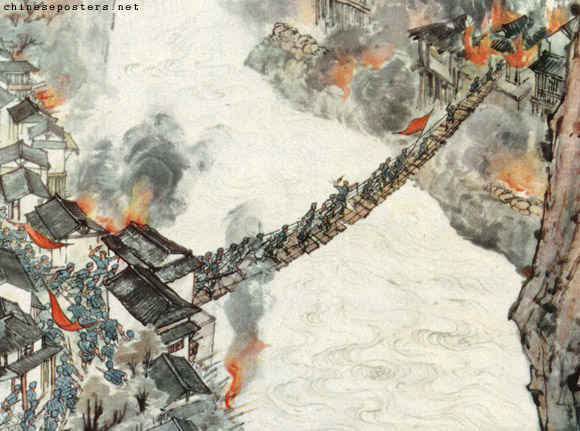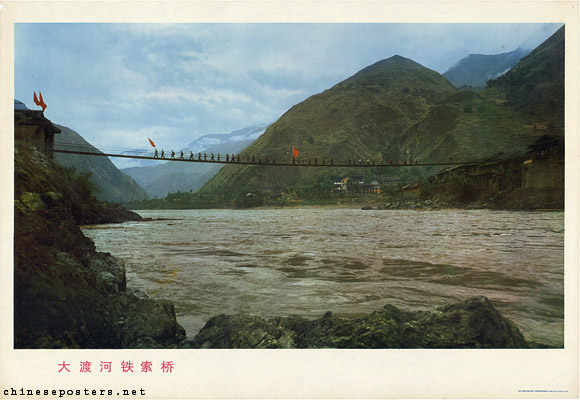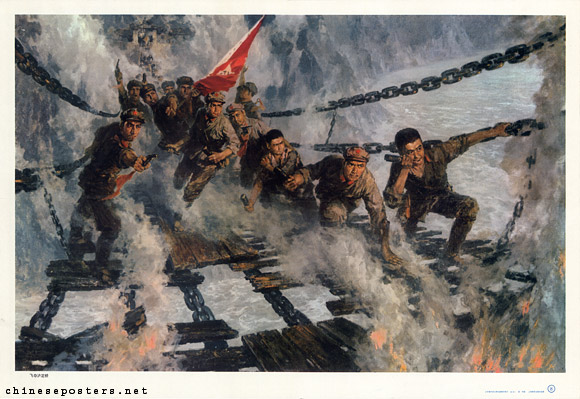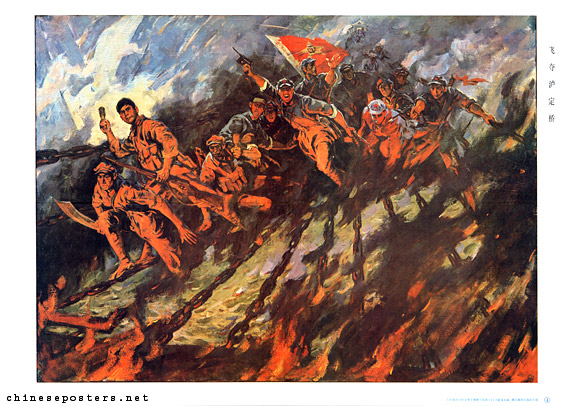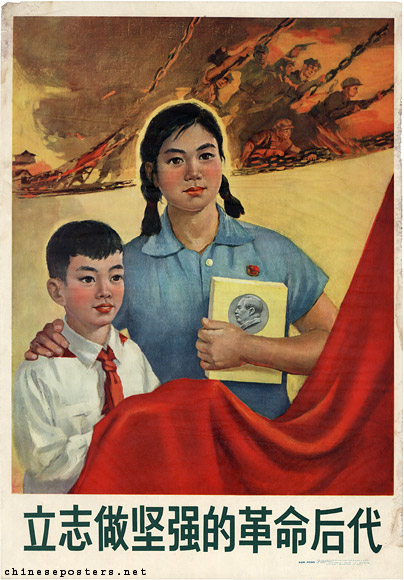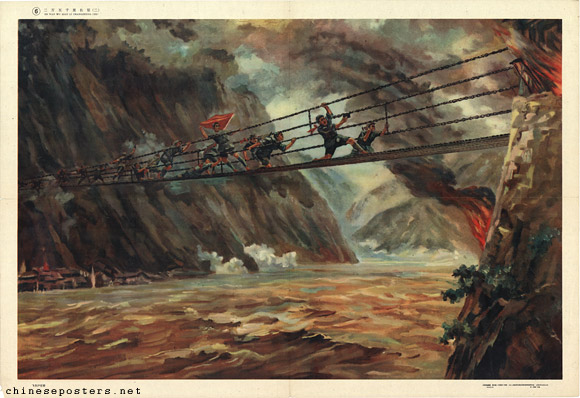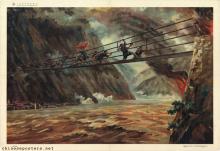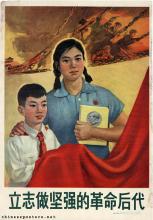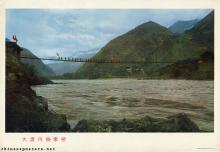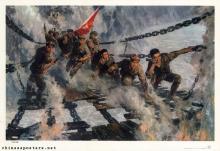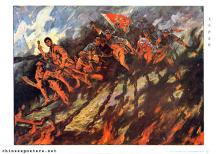Detail from An arduous journey scroll (four). Luding Bridge, 1961
The crossing of the Dadu River (Sichuan Province) during the Long March was a truly heroic feat. The number of available boats was inadequate and the Luding Bridge (泸定桥, Ludingqiao), an iron chain structure built during the Qing dynasty, was the only alternative for the communists to move further to Yan’an.
The iron chain bridge across the Dadu, 1971
The suspension bridge consists of thirteen chains, nine forming the floor, covered with planking, with two chains on either side serving as rails. When the troops of the vanguard unit led by Lin Biao reached the bridge on 29 May 1935, they discovered that the Guomindang Army units at the opposite end had removed two-thirds of the planking; the remaining flooring had been set on fire.
Swiftly taking Luding Bridge, no date
An advance unit of 22 men was ordered to take the bridge. Abandoning their equipment except for rifles and bullets, they inched their way over the chains under enemy machine gun fire and were able to reach the other side, routing the Guomindang troops. Fifteen of the 22 survived the crossing. After another two hours, Luding Bridge was securely in the hand of the Party and the Red Army.
Swiftly taking Luding Bridge, no date
The crossing of the Dadu River contributed greatly to the myth surrounding the Long March and those taking part in it. From this point on, the Red Army was said to be made up of "supermen". The Party used the crossing for its own purposes as well, turning it into a huge propaganda effort. Over the years, many movies were made, dedicated to the soldiers’ heroism. Having been etched onto the collective consciousness, the Luding Bridge became a must-see destination for Red Guards during the period of revolutionary networking (串联, 1966).
Harrison E. Salisbury, The Long March - The Untold Story (New York, etc.: Harper & Row Publishers, 1985)
